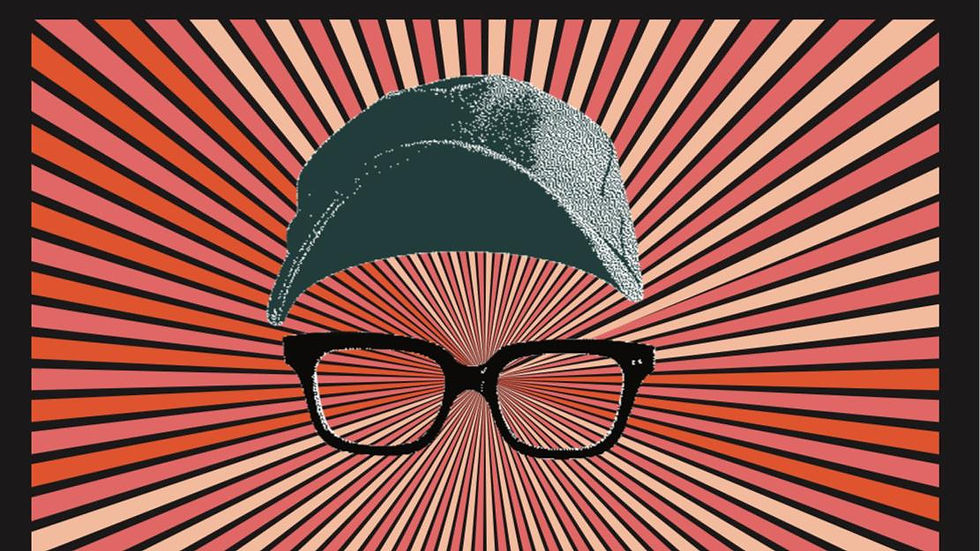Holding a Mirror to a Divided Nation, an Interview With Daniel Damiano
- James Bartholomew

- May 24, 2019
- 4 min read
Updated: Aug 10, 2021
Daniel Damiano is an Award‑winning Playwright, Actor and Poet based in Brooklyn, NY. Recent productions of his work include the World Premier of “The Lepers” in Ensemble Studio Theatre’s Marathon of One‑Act Plays, various incarnations of his acclaimed solo play “American Tranquility” at the PIT Loft, the 2018 Downtown Urban Arts Festival and at the East Village Playhouse, as well as the World Premier of “Harmony Park” with Detroit Repertory Theatre. His acclaimed play “Day of the Dog” was recently published by Broadway Play Publishing. He will next be reviving “American Tranquility” in Washington, DC as part of the Capital Fringe Festival in July 2019, produced by fandango 4 Art House, under the direction of Kathy Gail MacGowan. Website: www.danieldamiano.com James Bartholomew: In “American Tranquility,” you perform as four separate characters, each with very different experiences and beliefs. Did that present any challenges for you as an actor? Daniel Damiano: Having played multiple characters in plays before, including an earlier solo show of mine, I’ve actually come to prefer playing multiple roles in a work. For “American Tranquility,” the idea was to create characters that would offer different perspectives, as well as cultural and regional differences. At the same time, I was also looking to create interesting opportunities for myself as an actor. How did you go about crafting these characters? Did you write their viewpoints independently, or did they evolve in response to each other? The impetus for this particular show was the theme of societal division in America, and so, out of that, I created characters who I felt could speak about subjects that most resonated with them along those lines, be they ageism, immigration, disconnection, political extremism, among others. Has there been any aspect of the audience reaction to this piece that has surprised you? In NYC, you often feel that you will be speaking to like‑minded audiences on certain subjects. However, I knew it would be interesting to hear and see reactions to the character who leans a bit more on the extremist side of things. Many have been able to accept the character on a satirical level, while others have found it more challenging – but that is by design. What inspired you to write this play, and why did you choose to structure it the way you did? While the show is more about humanity than politics, without question, the political fumes that were in the air from the results of the 2016 presidential election had a more than significant influence on how the play came to be, and how fast it came together. Yet, while it reinforced the theme of societal division, it also illuminated other issues that I had been wrestling with as a human being in America – such as the adverse effects of cyber culture, and how we seem to innovate quickly while, at the same time, regressing in so many other basic ways. Why was it important to you to add moments of levity and comedy in your performance? I think as far back as “All in the Family,” there has been a growing necessity, at least in America, to discuss serious issues in ways that are not exclusively serious. That seems to be the best way to sustain the attention of the contemporary American audience, especially in theatre. I also think it helps give nuance to storytelling, since life itself is not exclusively a drama, and actually contains as much, if not more, absurdity than can often be created from scratch. The characters in your show express perspectives that are at times divisive and in stark contrast with each other. As a result, it’s almost guaranteed that audience members will encounter something or someone they disagree with. Was that something you prioritized when crafting this play? Speaking more generally, what benefit do you think there is in engaging with beliefs that we might find distasteful? While many themes within the play are, I feel, in line with what many audiences are feeling or have felt, I think it’s also important to rattle the cage a bit, in a way that’s not shocking for shock’s sake – but can actually challenge an audience to maybe even agree with something that they might not have previously admitted to. It’s also an opportunity not just to create characters that are commenting and judging, but to depict those who are commented on and judged, fairly or not. Which of the four characters is your favorite to play? It’s a cliché, but they are all dear to me as a performer, and each presents very different challenges, which I embrace. Yet, thematically, I would have to say that Ronnie, the Brooklyn existentialist, casts the widest net with his life philosophy, and is the one who pretty much ties things together. In that respect, I feel, personally, that he sums things up best. Quite often, he seems to have the most universal appeal. But I truly love playing them all. “American Tranquility” Written and Performed by Daniel Damiano Directed by Kathy Gail MacGowan Photo credit: Judy Alvarez 7/10 at 8:45pm, 7/13 at 4:15pm, 7/14 at 3:45pm, 7/19 at 8:30pm, and 7/21 at 2pm The 2019 Capital Fringe Festival Christ United Methodist Church – 900 4th Street SW Washington, DC

JAMES BARTHOLOMEW is a writer and musician living in New York City. He is an administrator of the Fordham University Theatre Program and an avid lover of the arts.



Comments